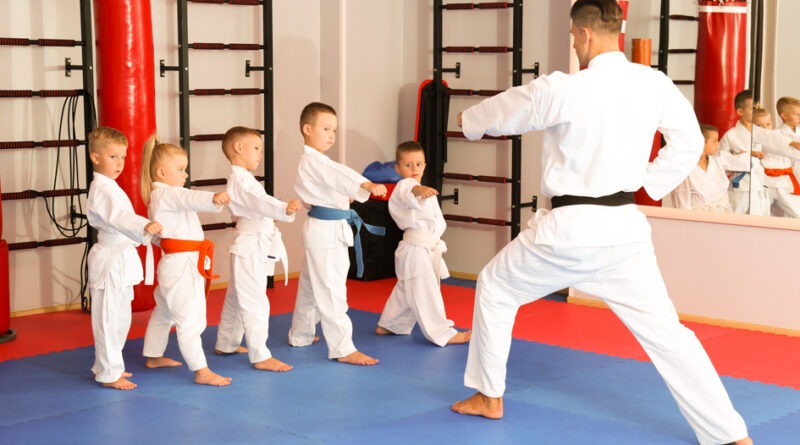Martial Arts for Kids: Unlocking the Benefits of Karate Classes
Martial arts, revered for centuries as a paradigm of self-discipline and physical prowess, are becoming an increasingly popular choice for children’s activities. This post will delve into the multifaceted world of martial arts with a spotlight on Karate classes, showcasing how these sessions are not mere physical exercises but a holistic approach to child development. With a surge in sedentary lifestyles, the importance of involving children in physical activities can never be overstated, and Karate, with its meticulous blend of mental and physical elements, emerges as a remarkable option.
The Popularity of Martial Arts
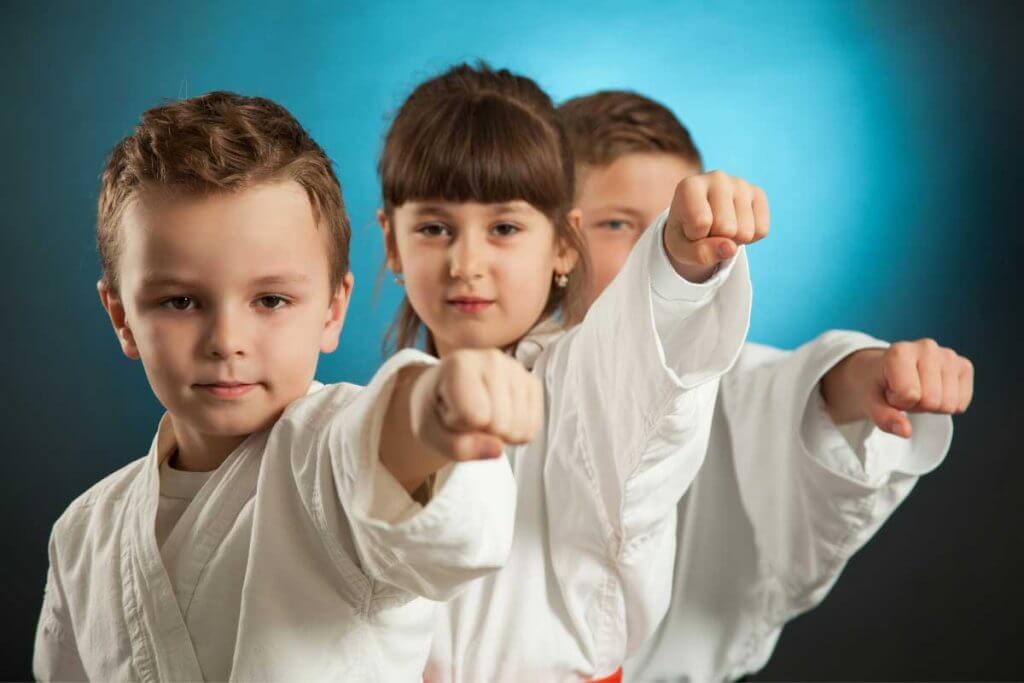
The rising tide of martial arts among children is a global phenomenon, underscoring a shift towards activities that offer a blend of mental and physical development. The diversity in martial arts—from Taekwondo to Jiu-Jitsu—offers a plethora of options for kids, each cultivating a unique set of skills. A survey by the American Martial Arts Institute reveals a significant uptick in enrollments, with parents acknowledging the multifarious benefits imbued by martial arts. This surge indicates a growing awareness and acceptance of martial arts as a beneficial pursuit for children.
What Is Karate?
Karate, originating from Okinawa, Japan, is a martial art that combines striking techniques, primarily using punches, kicks, knee strikes, and open-hand techniques. Its rich history is intertwined with the culture and philosophy of its place of origin, advocating values like respect, perseverance, and integrity. Karate is not merely a physical discipline; it’s a journey of self-discovery and self-mastery, nurturing virtues like respect and humility, foundational to the overall development of an individual.
Physical Fitness Benefits
Karate, with its dynamic moves and techniques, serves as an exemplary mode of physical exercise, promoting enhanced strength, flexibility, and endurance. These classes are a remedy to the alarming rise in childhood obesity, offering a structured and engaging form of physical activity. The meticulous drills and rigorous training involved in Karate not only fortify the muscles but also enhance cardiovascular health, fostering a holistic sense of well-being in children. The consistent engagement with diverse Karate techniques catalyzes the development of a robust and resilient physique, preparing children for an active and healthy lifestyle and this is why you need to enlist your youngling at one of the karate schools in Illinois.
Discipline and Focus
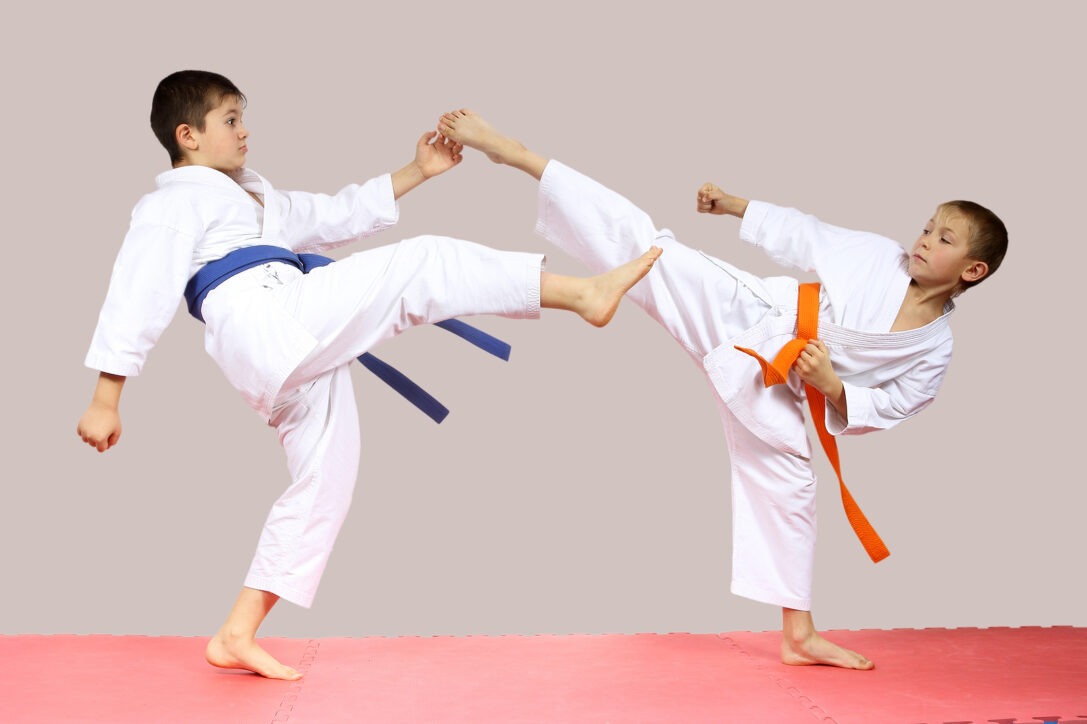
Inculcating discipline and focus is at the core of Karate training. The adherence to a strict code of conduct, coupled with the emphasis on self-control and respect, molds children into disciplined individuals. The journey of mastering Karate is dotted with numerous instances where children, through persistent effort and unwavering focus, overcome challenges, thus learning the invaluable lessons of patience and perseverance. Stories abound of children, once impulsive and unruly, transforming into focused and respectful individuals, attributing their metamorphosis to their Karate journey.
Confidence Building
Karate classes are fertile grounds for the growth of self-esteem in children. The journey through different belt colors serves as a constant source of accomplishment and motivation. A myriad of stories echo the sentiment of heightened confidence; children, once timid and unsure, evolving into assertive individuals, their newfound confidence a beacon of their acquired skills and accomplishments in Karate. The environment in Karate classes is structured to nurture a sense of achievement, providing children with constant opportunities to surmount challenges and relish their accomplishments.
Self-Defense Skills
Karate is not just a sport; it’s synonymous with self-defense. The refined, unique skills imbibed diligently during meticulous training sessions are not mere moves; they are practical, invaluable tools for self-protection. The inherent ability to defend oneself is a fundamental, inalienable right, and Karate powerfully empowers children with precise knowledge and proficient skills to ward off threats and avoid harm effectively. Numerous real-life instances narrate vivid tales of young children employing their honed Karate skills to navigate through precarious, unforeseen situations safely and efficiently, thus underscoring the tangible practical applicability and undeniable importance of learning Karate from a young age.
Emotional and Mental Benefits
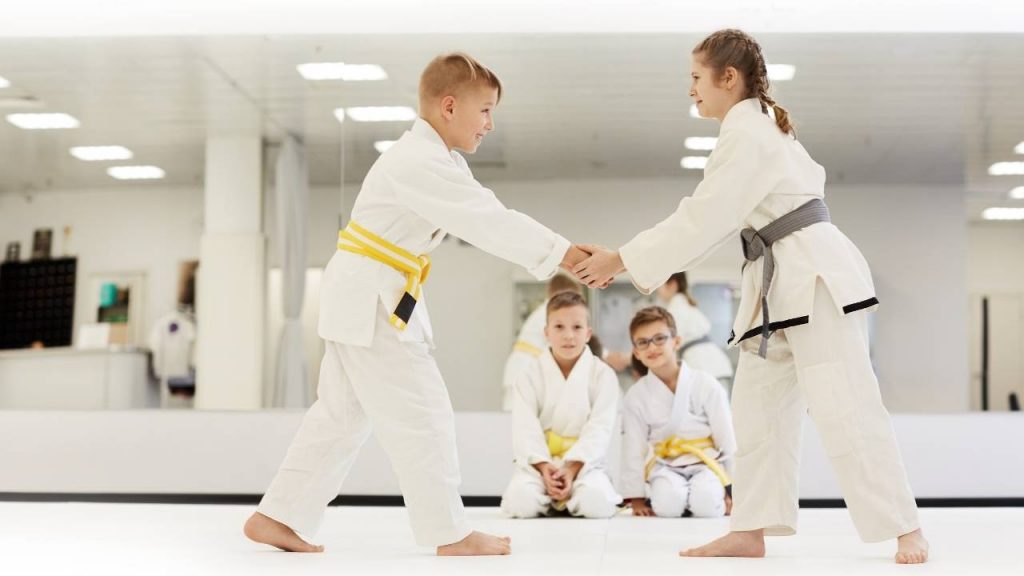
Beyond merely the physical realm, Karate serves as a profound conduit for enhanced emotional and mental well-being. It’s a disciplined, structured medium for stress release and emotional regulation, enabling children to navigate the often tumultuous, confusing landscape of emotions with efficacy and grace. The meticulous focus on breathing and unwavering concentration integral to Karate is a soothing balm to the disturbingly escalating instances of bullying, offering much-needed solace and innate strength to the young, affected children. The rich, ancient philosophy of Karate, emphatically emphasizing inner peace, resilience, and emotional control, acts as a steady beacon guiding children safely through their multifaceted emotional journeys.
Social Skills and Teamwork
Karate classes are a vibrant microcosm of supportive, encouraging communities, actively fostering positive interactions and mutual respect. The dojo, a sanctuary for many, becomes a fertile meeting ground for like-minded individuals, forging deep friendships and a robust sense of belonging and unity. Numerous heartfelt stories, shared by parents and children alike, narrate inspiring tales of lasting friendships born and nurtured in the warm, supportive environment of the dojo, thereby highlighting the crucial, impactful role of Karate classes in significantly enhancing social skills and fostering a strong sense of community among diverse children.
Setting and Achieving Goals
Karate elucidates the essence of goal-setting through its structured belt system. This structured progression motivates children to strive, persevere, and attain their goals. The myriad success stories reverberating in the Karate world are testaments to the effectiveness of this structured approach in instilling a sense of purpose and determination in children, aiding them in their quests to reach their potential.
Age-Appropriate Training
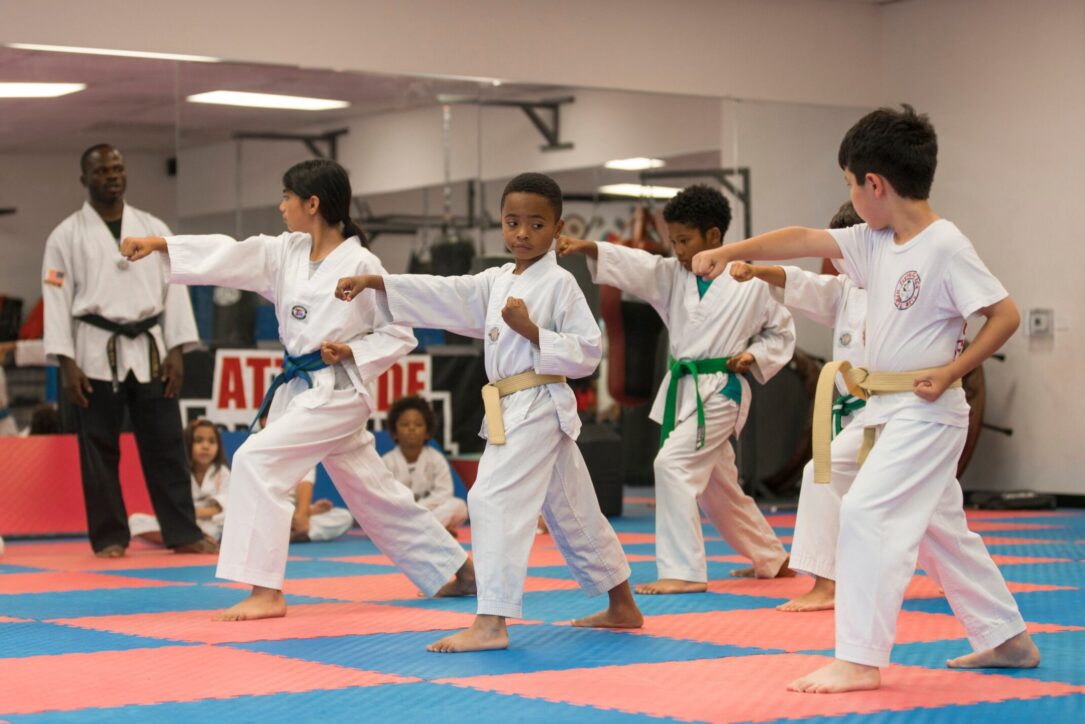
The mosaic of Karate classes available caters to various age groups, ensuring the training is age-appropriate and conducive to learning. Parents should meticulously explore the options, focusing on the curriculum, teaching philosophy, and the overall environment to ensure the chosen program aligns with the child’s needs. A harmonious blend of these elements is pivotal in creating a nurturing and productive learning environment for the child.
Conclusion
Karate classes for kids are a holistic developmental journey, intertwining physical fitness, mental acuity, emotional resilience, and social skills. This ancient martial art is a treasure trove of benefits, sculpting children into disciplined, focused, and confident individuals. The myriad benefits of Karate are a clarion call for parents to consider enrolling their children in this multifaceted discipline, and an invitation for readers to share their enriching Karate experiences.
